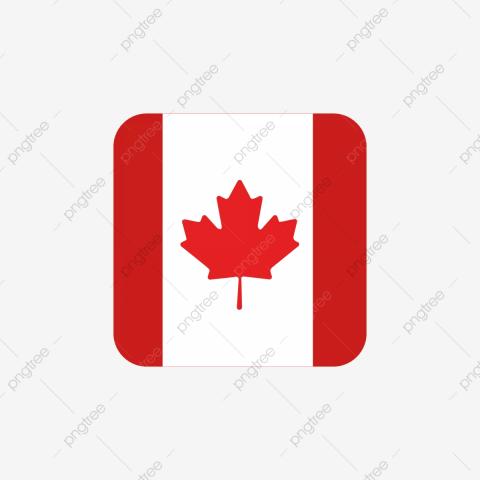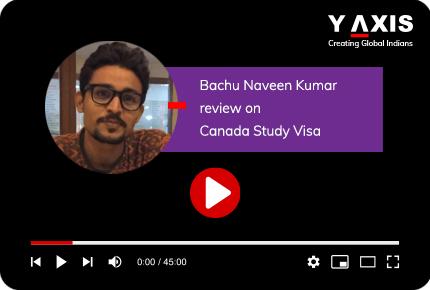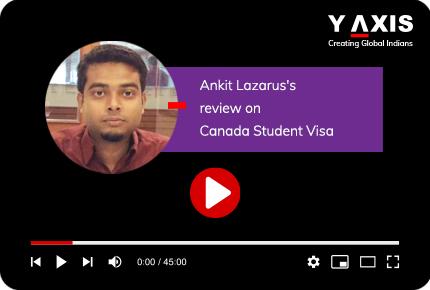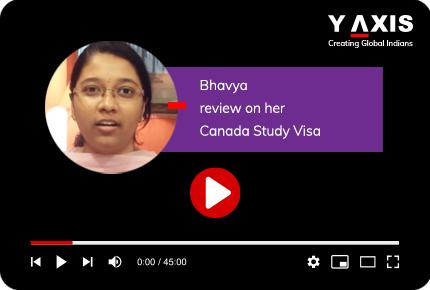
The Canada Express Entry Program relies on a points-based system to evaluate applicants. The main objective of this system is to identify applicants who have the highest chance of succeeding after they migrate to Canada. The points scale has a maximum score of 1200 and evaluates you and your spouse (if any) on your Age The highest level of education
- Language skills
- Canadian work experience
- Other work experience
- Skill transferability
- Other factors
- Benefits of the Express Entry System:
One advantage of this immigration program is its transparency. Applicants will know the CRS points they will have to score to be eligible for the Invitation to Apply (ITA) for permanent residence. Candidates will be aware of the median score they should obtain in order to qualify for the ITA, if they do not make the mark, they can always make efforts to improve their CRS score or consider other CRS options.
They can look at improving their language test results, or on gaining additional work experience, look at options to study in Canada or try for a provincial nomination. Better prospects for migrants: Young candidates with a higher level of education, language proficiency in English or French or both or those with Canadian experience (employees or students) have the potential to reach a higher CRS score and get selected through the Express Entry system. Candidates who manage to get a provincial nomination are eligible for 600 additional points. Those with a job offer in Canada or siblings residing in the country are eligible for additional points.
The Canada Express Entry Program is a points-based immigration program for professionals looking to settle in Canada.
It awards points to professionals based on skills, experience, Canadian employment status and provincial/territorial nomination. The higher your points, the greater your chances of receiving an invitation to Apply (ITA) for a Permanent Residency in Canada.
Typically PR applications submitted through this route are processed in 6-12 months or fewer. Take advantage of this lucrative program with Y-Axis. We are the leading authority on Canadian migration and can help you plan every step of your immigration process.
The Express Entry program has streamlined immigration for professionals and made the process more transparent.
Key details of the program are:
This is an online program which has no cap on applicants and is open throughout the year The program applies only to Federal Skilled Worker Program, Federal Skilled Traders Program, and Canadian Experience Class Immigration Program You must submit an Expression of Interest and apply as an applicant under any type of job mentioned in Skill Types 0, A and B Your profile will be evaluated based on points and will be placed in the applicant pool Canadian provinces and employers will access this pool and find talent to meet their needs The highest points holders are sent an Invitation to Apply for PR The number of ITAs issued is based on the Annual Immigration Level.

You will have an edge over other applicants if you know French. French language test like the Test de evaluation de Francians (TEF) will prove your proficiency in the language.
If you qualify by getting the required points, you can submit your profile. This will be included in the Express Entry pool.
The Canada Express Entry process follows a points-based system for classifying applicants seeking to settle in Canada. The points are awarded to clients based on a Comprehensive Ranking System or CRS. Points are given to applicants based on skills, experience, Canadian employment status and provincial/territorial nomination. The higher the points, the greater are the chances of getting an invitation to apply (ITA) for permanent residency in Canada.
Based on the Express Entry points system, every Express Entry draw has a minimum cutoff score. These draws are held at regular intervals. Those applicants with a CRS score equal or above the cutoff score will receive an ITA. If more than one candidate has a score equal to the cutoff score, the one with a long presence in the Express Entry pool will receive an ITA.
You can score the maximum points if you are between 18-35 years. Those above this age will gain lesser points.
Your minimum educational qualification must be equal to the higher secondary education level in Canada. A higher level of educational qualification means more points.
To score the minimum points you should have at least one year of work experience. If you have more years of work experience you will gain more points.
You must have at least 6 bands in your IELTS equivalent to CLB 7 to be eligible to apply and score the minimum points. Higher scores mean more points.
You can score ten points on the adaptability factor if your family members or close relatives are living in Canada and will be able to support you when you move in there. You can also gain points if your spouse or legal partner is ready to migrate with you to Canada.
A valid job offer from a Canadian employer entitles you for ten points.
How Y-Axis Can Help?
Y-Axis is the immigration consultant of choice for serious applicants for Canada immigration. Our thorough process and end-to-end support ensure you take the right action at every step. We help you with:
Qualification / Education Assessment
Customized Document Checklist and critical document templates
Guidance on key documentation requirements
Filing of an online application form to create a profile for Invitation
IELTS Guidance document
Reference letter Templates
Self Declaration Templates
Additionally, we also help our clients increase their chances with IELTS/TOEFL coaching and overseas job search services*. Talk to us to evaluate your chances and make an informed decision.



Y-Axis, India’s No. 1 overseas education consultants who can help you get an admission in the country of your choice in a hassle-free manner.
Where would you like to study?
Want to pursue an MS in the US? Want to take advantage of Germany’s free education? Keen on studying in and later working in Australia? Y-Axis can help you begin your higher education journey in the country of your choice. Our international presence and deep understanding of educational and work trends put us in a unique position to advise and help you realise your dream of studying in the country of your choice.
Y-Axis country-specific admissions solutions
Studying abroad is all about making the right decisions. Get everything right, and you are on course for a career that can transform your life. At Y-Axis, our process begins with evaluating your preferences and profile. We understand which countries you want to study in and your career trajectory and present well-researched options that can help you realise your dreams.
COUNTRY ADMISSIONS
|
COUNTRY ADMISSIONS
|
|
|
|
|
|
|
(Offer Price) |
(Offer Price) | |
| BUY NOW | BUY NOW |
How Y-Axis can help you
Y-Axis streamlines the process of studying in the country of your choice with our student-first solutions. We will help you with:
- Unbiased advice
- Dedicated study abroad consultant
- Detailed report on your options
- Help in shortlisting courses and colleges
- Your next steps to study abroad
Talk to our counsellors to understand your study abroad options.
{
"@context": "https://schema.org",
"@type": "BreadcrumbList",
"itemListElement": [
{
"@type": "ListItem",
"position": 1,
"name": "Home",
"item": "https://www.y-axis.com/"
},
{
"@type": "ListItem",
"position": 2,
"name": "Visa",
"item": "https://www.y-axis.com/visa/"
},
{
"@type": "ListItem",
"position": 3,
"name": "Study",
"item": "https://www.y-axis.com/visa/study/"
},
{
"@type": "ListItem",
"position": 4,
"name": "Country Specific Admission",
"item": "https://www.y-axis.com/visa/study/country-specific-admission/"
}
]
},
{
"@context": "https://schema.org",
"@type": "WebPage",
"@id": "https://www.y-axis.com/visa/study/country-specific-admission/#webpage",
"url": "https://www.y-axis.com/visa/study/country-specific-admission/",
"name": "Country-Specific Admission Requirements for International Students - Y-Axis",
"description": "Explore detailed academic, language, and visa requirements for international students applying to universities in top study destinations like the USA, Canada, UK, Australia, and Germany.",
"inLanguage": "en-US",
"datePublished": "2024-01-01T09:00:00+05:30",
"dateModified": "2025-07-19T15:58:40+05:30"
},
{
"@context": "https://schema.org",
"@type": "Article",
"@id": "https://www.y-axis.com/visa/study/country-specific-admission/#article",
"mainEntityOfPage": {
"@id": "https://www.y-axis.com/visa/study/country-specific-admission/#webpage"
},
"headline": "Understanding Country-Specific Admission for International Students: A Global Guide",
"description": "Explore detailed academic, language, and visa requirements for international students applying to universities in top study destinations like the USA, Canada, UK, Australia, and Germany.",
"datePublished": "2024-01-01T09:00:00+05:30",
"dateModified": "2025-07-19T15:58:40+05:30",
"author": {
"@type": "Organization",
"name": "Y-Axis"
},
"publisher": {
"@type": "Organization",
"name": "Y-Axis",
"logo": {
"@type": "ImageObject",
"url": "https://www.y-axis.com/assets/cms/2022-12/logo.jpg"
}
}
},
{
"@context": "https://schema.org",
"@type": "FAQPage",
"mainEntity": [
{
"@type": "Question",
"name": "What are the general academic admission requirements for international students in popular study abroad destinations like the USA, Canada, UK, Australia, and Germany?",
"acceptedAnswer": {
"@type": "Answer",
"text": "General academic requirements typically include a recognized high school diploma or equivalent for undergraduate programs, and a bachelor's degree for postgraduate studies. Many countries require a minimum GPA or percentage, and some programs may demand specific prerequisite subjects. Standardized tests like SAT/ACT (for USA undergrad), GMAT/GRE (for grad programs), and country-specific entrance exams might also be required."
}
},
{
"@type": "Question",
"name": "What are the common English language proficiency tests required for study abroad, and what are typical score expectations?",
"acceptedAnswer": {
"@type": "Answer",
"text": "The most common English language proficiency tests are IELTS Academic (typically 6.0-7.5), TOEFL iBT (79-100+), PTE Academic (50-75+), and Duolingo English Test (100-130+). Specific score requirements vary greatly by university and program, with higher-level courses often demanding higher scores. Some universities may also accept Cambridge English Qualifications or provide waivers for students from English-speaking countries."
}
},
{
"@type": "Question",
"name": "How does the application process differ for international students across various countries?",
"acceptedAnswer": {
"@type": "Answer",
"text": "The application process varies significantly. In the USA, it's often direct via university portals or common application systems with essays and recommendations. Canada uses provincial application portals like OUAC or direct university applications. The UK primarily uses UCAS for undergraduates and direct applications for postgraduates. Australia utilizes direct university applications or agent services. Germany often involves applying through uni-assist or directly, with a pre-application (pre-enrollment) for visa purposes, and sometimes requires an APS certificate for specific nationalities."
}
},
{
"@type": "Question",
"name": "What are the estimated tuition costs for international students in major study abroad countries?",
"acceptedAnswer": {
"@type": "Answer",
"text": "Estimated annual tuition costs vary widely: USA ($25,000 - $60,000+ USD), Canada ($20,000 - $40,000+ CAD), UK (£15,000 - £35,000+ GBP), Australia ($25,000 - $45,000+ AUD), and Germany (mostly free at public universities, but private institutions can charge €10,000 - €25,000+ EUR per year, plus mandatory semester fees). These are estimates and depend heavily on the institution, program, and level of study."
}
},
{
"@type": "Question",
"name": "What are the general visa or study permit requirements for international students in countries like Canada, Australia, UK, USA, and Germany?",
"acceptedAnswer": {
"@type": "Answer",
"text": "Common requirements include a valid passport, an acceptance letter from a designated learning institution, proof of sufficient funds to cover tuition and living expenses, evidence of English/local language proficiency, a medical examination, and a police/character certificate. Some countries like Canada have a 'Genuine Student' requirement (GS), while others like Germany may require a blocked account and an APS certificate for certain nationalities. Visa processing times and specific documentation vary by country and consulate."
}
},
{
"@type": "Question",
"name": "Are there scholarships or financial aid options commonly available for international students across different countries?",
"acceptedAnswer": {
"@type": "Answer",
"text": "Yes, scholarships are available, though they are often competitive. Sources include university-specific scholarships (merit-based, program-specific), government scholarships (e.g., Chevening in the UK, Endeavour in Australia, DAAD in Germany, Fulbright in the USA), and external organizations or foundations. Eligibility often depends on academic excellence, financial need, leadership potential, or country of origin."
}
},
{
"@type": "Question",
"name": "Do international students need to prove financial capacity for their studies abroad, and what are the typical amounts?",
"acceptedAnswer": {
"@type": "Answer",
"text": "Yes, proof of financial capacity is almost universally required. Typical minimum annual amounts for living expenses (excluding tuition) are: Canada (CAD $20,635+), Australia (AUD $29,710+), UK (£1,023-£1,334 per month depending on location), USA (varies significantly, often $10,000-$20,000+ USD), and Germany (€11,904+ EUR for blocked account). These amounts are subject to change and should be confirmed with official government or university sources."
}
},
{
"@type": "Question",
"name": "Can international students work part-time while studying in popular study abroad destinations?",
"acceptedAnswer": {
"@type": "Answer",
"text": "Yes, most popular study destinations permit international students to work part-time. Common limits are around 20 hours per week during academic sessions (e.g., Canada, UK, Australia, Germany) and full-time during scheduled breaks. The USA has stricter on-campus work rules and specific off-campus work authorization (CPT/OPT) only after a period of study. Students typically do not need a separate work permit but must adhere to visa conditions."
}
},
{
"@type": "Question",
"name": "What is the average duration of the visa application process for international students?",
"acceptedAnswer": {
"@type": "Answer",
"text": "The average duration of the study visa application process can range from **4 weeks to 16 weeks or more**, depending on the country, the applicant's nationality, the volume of applications, and the completeness of the submitted documents. It's highly recommended to apply as early as possible after receiving an acceptance letter, ideally 3-6 months before your program start date, to avoid delays."
}
},
{
"@type": "Question",
"name": "Are there post-study work opportunities commonly available in countries popular for international students?",
"acceptedAnswer": {
"@type": "Answer",
"text": "Yes, many popular study destinations offer post-study work opportunities. Canada has the Post-Graduation Work Permit Program (PGWPP) for 8 months to 3 years. Australia offers the Temporary Graduate visa (subclass 485) for 18 months to 4 years. The UK has the Graduate visa allowing 2 years (3 years for PhD). Germany offers an 18-month job search visa. The USA offers Optional Practical Training (OPT) for 12-36 months for STEM graduates. These opportunities allow graduates to gain work experience and potentially transition to permanent residency."
}
}
]
}
]
